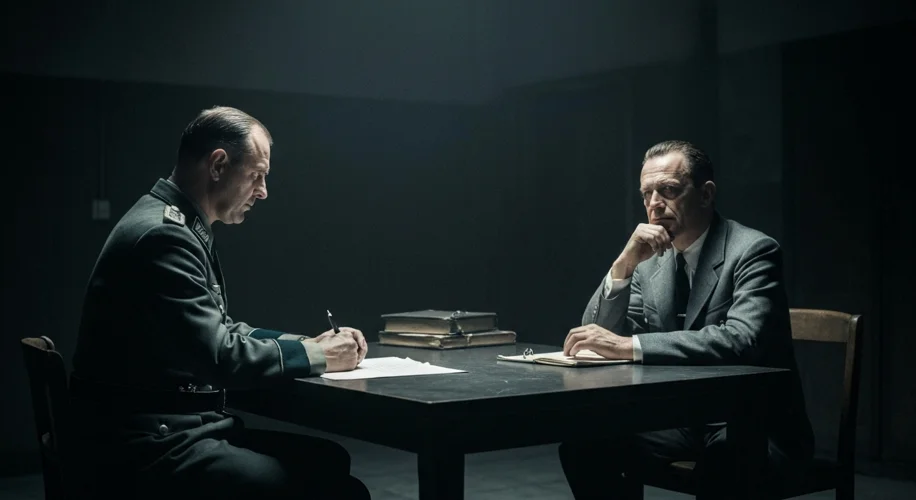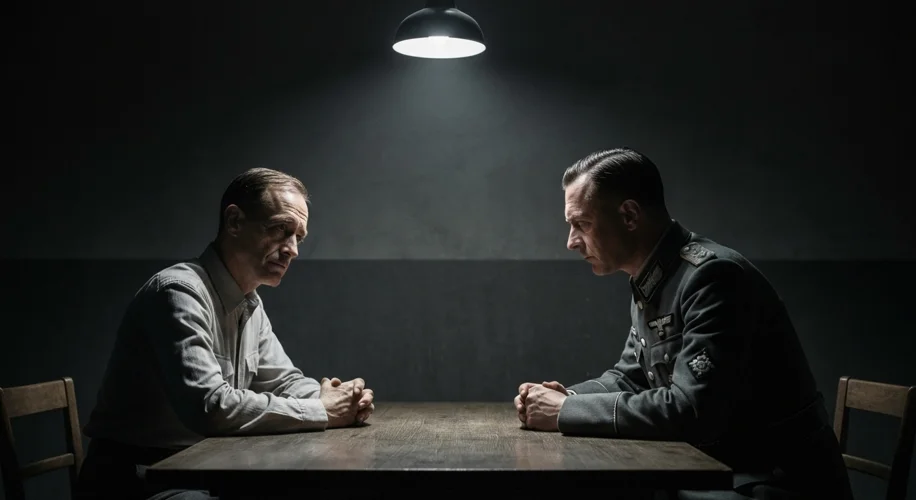The summer of 1944 hung heavy over Nazi Germany. The war, once a beacon of swift conquest, was now a grinding, brutal conflict. On July 20th, a desperate group of German military officers, disillusioned by Hitler’s increasingly catastrophic leadership, attempted to assassinate him and overthrow the regime. The “20 July Plot,” also known as Operation Valkyrie, was a meticulously planned, yet ultimately failed, bid to restore a semblance of order to a nation drowning in its own tyranny.
While the plot’s leaders like Claus von Stauffenberg were quickly apprehended and executed, the Gestapo, the notorious secret police of Nazi Germany, relentlessly pursued anyone even remotely connected to the conspiracy. Their goal was not merely to punish the guilty, but to dismantle any remaining opposition and instill terror.
One of the more intriguing, and perhaps tragic, figures to be caught in this dragnet was Erich Fromm, a prominent psychoanalyst and social philosopher. Fromm, known for his critiques of societal control and his exploration of alienation, found himself under the harsh scrutiny of the Gestapo. His connection to the plot was not one of direct involvement in the assassination attempt itself, but rather through his intellectual circles and his known sympathies with some of the plotters’ anti-Nazi sentiments. Fromm had been a member of the Freudian Society of Berlin and later, in exile in the United States, became a prominent figure in the Frankfurt School of critical theory. However, his movements and associations in Germany prior to his emigration in 1933 had drawn the attention of the Nazi authorities.

The Gestapo’s interrogation methods were legendary for their brutality and psychological manipulation. They sought not just confessions, but the names of all co-conspirators, regardless of how tenuous the connection. The interrogation of an intellectual like Fromm presented a different challenge than that of a soldier or a lower-level operative. The regime understood that ideas could be as dangerous as bombs, and Fromm’s sharp intellect and critical analysis of society made him a person of interest.
Prisoners were subjected to sleep deprivation, constant questioning, isolation, and threats against their families. The aim was to break their will, to erode their sense of self, and to make them compliant. For someone like Fromm, whose life’s work was dedicated to understanding the human psyche and the societal forces that shape it, this descent into the machinery of state-sponsored torment must have been a profound violation. It was an inversion of his own therapeutic principles, where empathy and understanding were replaced by coercion and fear.
Details of Fromm’s specific interrogation are scarce, often hidden within the classified archives of the post-war era. However, historical accounts suggest that he was indeed questioned regarding his knowledge of individuals involved in the July 20 plot. His existing emigration status (he had left Germany in 1933) likely played a role in his ultimate fate, differentiating him from those who remained and actively participated. While the Gestapo was notorious for its effectiveness in crushing dissent, their methods were also prone to overreach and the persecution of individuals based on suspicion rather than concrete evidence. The regime’s paranoia, fueled by the imminent threat of defeat, often led to the indiscriminate targeting of anyone deemed a potential enemy.
Fromm’s experience, though less physically violent than that of many other victims of Nazi persecution, highlights the pervasive nature of the regime’s surveillance and its ruthless pursuit of perceived threats. The interrogation of intellectuals like Fromm was part of a broader strategy to silence any form of opposition, whether it manifested in direct action or in the subtle power of critical thought. The Gestapo’s goal was to create a state of absolute conformity, where even the contemplation of dissent was a punishable offense.
The aftermath of the July 20 plot saw a brutal crackdown across Germany. Thousands were arrested, tortured, and executed. The regime’s efficiency in using terror as a tool of control was undeniable, even as its ultimate strategic aims were failing. For individuals like Erich Fromm, the encounter with the Gestapo was a stark reminder of the fragility of freedom and the ever-present danger posed by totalitarian power. His subsequent work, deeply influenced by his understanding of societal pathologies and the human capacity for both destruction and resistance, continued to explore the very themes that had placed him in the crosshairs of the Nazi state.

